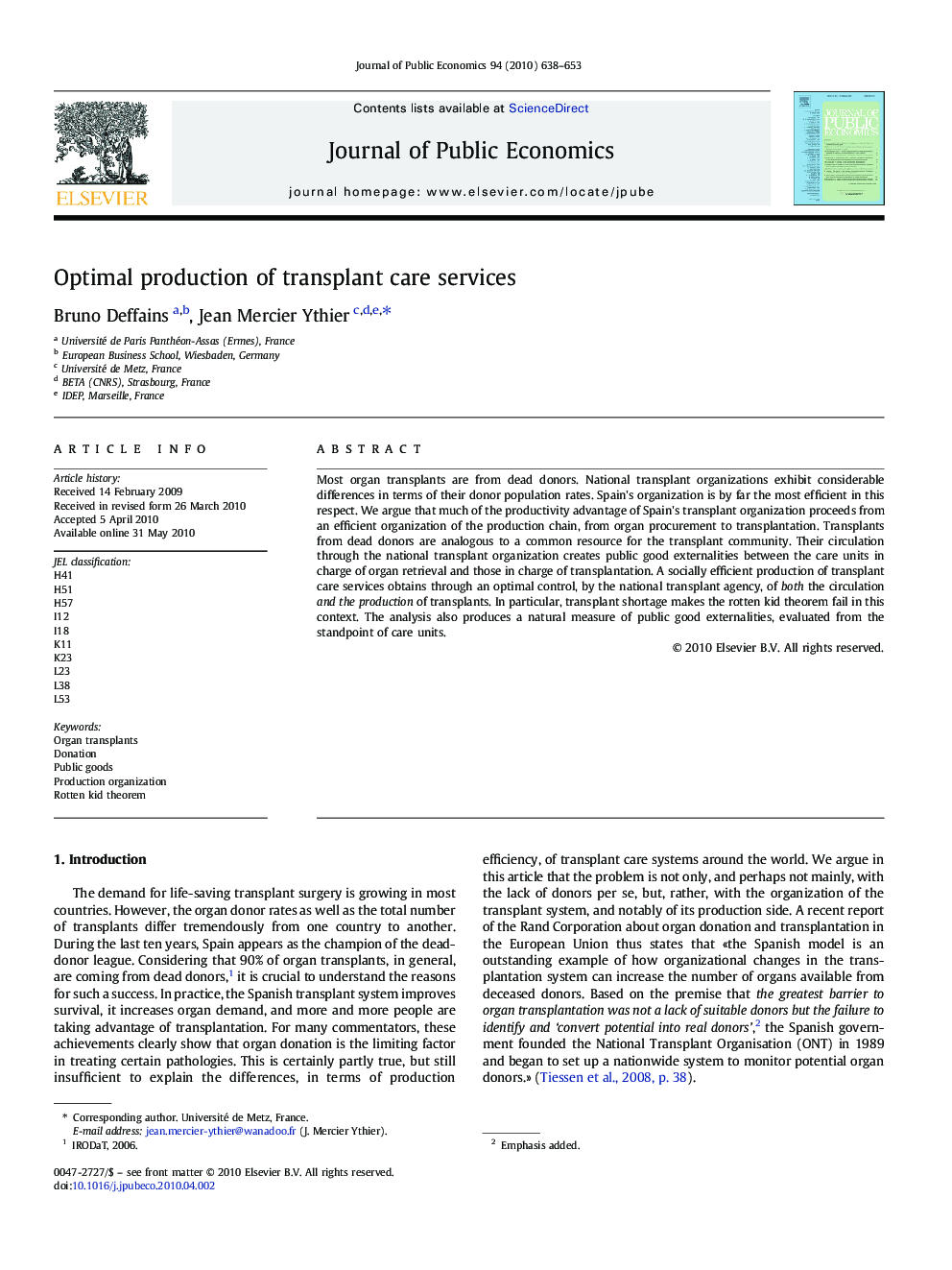| Article ID | Journal | Published Year | Pages | File Type |
|---|---|---|---|---|
| 969407 | Journal of Public Economics | 2010 | 16 Pages |
Most organ transplants are from dead donors. National transplant organizations exhibit considerable differences in terms of their donor population rates. Spain's organization is by far the most efficient in this respect. We argue that much of the productivity advantage of Spain's transplant organization proceeds from an efficient organization of the production chain, from organ procurement to transplantation. Transplants from dead donors are analogous to a common resource for the transplant community. Their circulation through the national transplant organization creates public good externalities between the care units in charge of organ retrieval and those in charge of transplantation. A socially efficient production of transplant care services obtains through an optimal control, by the national transplant agency, of both the circulation and the production of transplants. In particular, transplant shortage makes the rotten kid theorem fail in this context. The analysis also produces a natural measure of public good externalities, evaluated from the standpoint of care units.
